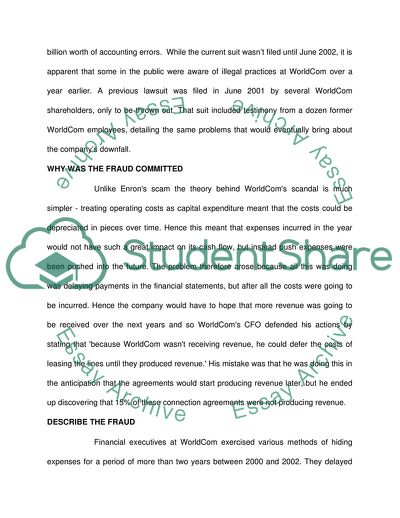Cite this document
(Success of WorldCom Case Study Example | Topics and Well Written Essays - 2250 words, n.d.)
Success of WorldCom Case Study Example | Topics and Well Written Essays - 2250 words. https://studentshare.org/finance-accounting/1721809-worldcom-paper
Success of WorldCom Case Study Example | Topics and Well Written Essays - 2250 words. https://studentshare.org/finance-accounting/1721809-worldcom-paper
(Success of WorldCom Case Study Example | Topics and Well Written Essays - 2250 Words)
Success of WorldCom Case Study Example | Topics and Well Written Essays - 2250 Words. https://studentshare.org/finance-accounting/1721809-worldcom-paper.
Success of WorldCom Case Study Example | Topics and Well Written Essays - 2250 Words. https://studentshare.org/finance-accounting/1721809-worldcom-paper.
“Success of WorldCom Case Study Example | Topics and Well Written Essays - 2250 Words”. https://studentshare.org/finance-accounting/1721809-worldcom-paper.


